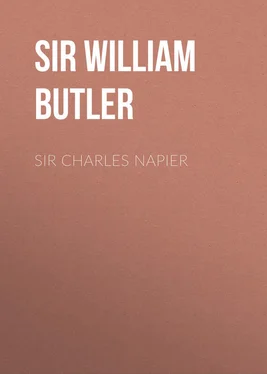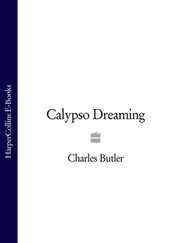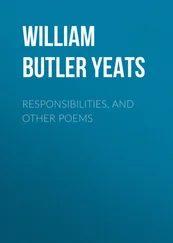William Butler - Sir Charles Napier
Здесь есть возможность читать онлайн «William Butler - Sir Charles Napier» — ознакомительный отрывок электронной книги совершенно бесплатно, а после прочтения отрывка купить полную версию. В некоторых случаях можно слушать аудио, скачать через торрент в формате fb2 и присутствует краткое содержание. Жанр: foreign_antique, foreign_prose, на английском языке. Описание произведения, (предисловие) а так же отзывы посетителей доступны на портале библиотеки ЛибКат.
- Название:Sir Charles Napier
- Автор:
- Жанр:
- Год:неизвестен
- ISBN:нет данных
- Рейтинг книги:3 / 5. Голосов: 1
-
Избранное:Добавить в избранное
- Отзывы:
-
Ваша оценка:
- 60
- 1
- 2
- 3
- 4
- 5
Sir Charles Napier: краткое содержание, описание и аннотация
Предлагаем к чтению аннотацию, описание, краткое содержание или предисловие (зависит от того, что написал сам автор книги «Sir Charles Napier»). Если вы не нашли необходимую информацию о книге — напишите в комментариях, мы постараемся отыскать её.
Sir Charles Napier — читать онлайн ознакомительный отрывок
Ниже представлен текст книги, разбитый по страницам. Система сохранения места последней прочитанной страницы, позволяет с удобством читать онлайн бесплатно книгу «Sir Charles Napier», без необходимости каждый раз заново искать на чём Вы остановились. Поставьте закладку, и сможете в любой момент перейти на страницу, на которой закончили чтение.
Интервал:
Закладка:
The advance of the Fiftieth and Forty-Second from the ridge had left a gap in that part of the line of battle. Turning to one of his staff, Moore directed him to ride back to the reserve and bring up a battalion of Guards to fill the vacant place; then noticing that some companies of the Forty-Second had got into confusion and were falling back, he called out to that regiment to "remember Egypt," and reminded "his brave Highlanders" that they had "still their bayonets left." It was at this moment that a round shot from the battery on the height struck him. The hurtle and crash of the ball made the cream-coloured charger plunge into the air, and the rider fell backward to the ground, but so firm had been his seat that those who were looking on did not believe the shot had struck, so quietly did he seem to fall. This impression was further strengthened when they saw the tall figure half rise from the ground, while his look sought the enemy's ranks with the same calm and intent expression which his face had before worn. But though no sound or sign of suffering seemed to come between the General's mental consciousness and the battle before him, all the worst hurt that shot can do to poor humanity had been done. The left shoulder had been shattered, the arm hung by a shred, and the flesh and muscles of breast and side had been terribly lacerated. When those who were near became aware of the dreadful nature of the wound they tried to disengage the sword from the mangled side. Who can ever forget the dying man's words as he noticed the kindly attempt: "Let it be. I had rather it should leave the field with me." Then he is placed in a blanket and carried to the rear by some Highlanders of the Forty-Second. By this time a couple of surgeons have come up; but he knows the wound is past human cure, and he tells them to go to the soldiers to whom they can still be of use. As they carry him farther back from the fight he makes the bearers often pause and turn him round again to the front, so that he may see for a little longer how nobly his soldiers hold their ground. When they bring him to his quarters his French servant François is overcome with tears at the sight, but Moore says quietly to him, "My friend, this is nothing." And so the day closes, and darkness brings news that the attack of the enemy has failed, and that the ridge from Elvina to the sea is still held by the British. Then, with the honour of his soldiers safe, he turns to his friends. He forgets no one; the interests of aides-de-camp and of the members of his staff are remembered; he sends messages to many friends – one in particular to Lady Hester Stanhope – and once only his voice fails; it is when he mentions the name of his mother. Then, as the shades of rapidly-approaching death gathered closer, it seemed that the images of the cowardly men at home, who, he felt, were certain arose before his fading vision, for with a great effort he appealed from those "posthumous calumniators" to "the people," suddenly exclaiming, "I hope the people of England will be satisfied. I hope my country will do me justice." That dying hope has been realised. Few names stand in purer lustre than that of Sir John Moore. Fortunately immortality is not always measured by success. The chiefs and people of England, who know so little of real war themselves, are perhaps the hardest censors upon military misfortune. Moore's memory was vehemently assailed by the Ministers and Government officials of the day, who tried to screen their own flagrant shortcomings by calumniating the name of the heroic soldier who was no longer there to answer them, and all the paid scribblers and talkers of the time were busy at their truculent work. But justice came at last, earlier and more conspicuously from the enemies who had fought against Moore than from the nation for whose honour and in whose service he had died. Soult and Ney raised a monument to his memory at Corunna almost at the time when Southey, finding out what the world had long known, viz. that although the King might make him a laureate, nature had not made him a poet, began to attempt to write history and to criticise military genius. But a greater soldier than Soult or Ney had still earlier placed the military fame of Moore beyond the reach of little minds. When Napoleon heard of Moore's march from Salamanca to Sahagun, in December, 1808, he exclaimed, "I shall advance against Sir John Moore in person. He is now the only general fit to contend with me." "Where shall we find such a king?" asks William Napier in a letter written from the battle-fields of Portugal two years after Corunna. Fifteen years later the first volume of the Peninsular War appeared, and if the spirits of the illustrious dead can read the books that record their actions on earth, that of Moore might well exclaim, "Where has king found such a chronicler?"
Lightly to speak of the spirit that's gone,
And o'er his cold ashes upbraid him,
We must go back to Charles Napier, fighting fiercely in the enclosures between Elvina and the great battery, and raging because the supports which might have turned his withered effort into success were denied him. We have seen the reason of this denial. The fall of Moore paralysed the thinking power of those who succeeded to the command. Instead of supporting the attack of the Fiftieth, orders were sent to recall that regiment, and Napier and the few men who were still with him were left alone in the extreme front. This withdrawal from Elvina allowed the French light troops to surround Napier's party. Finding himself thus enclosed in a net, he gathered the few survivors around him and made a dash to cut his way through to the English line, but it was too late. He was surrounded and made prisoner. Both sides would appear to have exhausted their ammunition at this point, and the fight was now entirely of cold steel. It is so full of graphic detail, and gives so many glimpses of national characteristics under stress of battle, that it had best be told in Napier's own words.
I said to the four soldiers [Irish privates of the Fiftieth and Forty-Second] "Follow me and we will cut through them." Then with a shout I rushed forward. The Frenchmen had halted, but now ran on to us, and just as my spring was made the wounded leg failed, and I felt a stab in the back; it gave me no pain, but felt cold, and threw me on my face. Turning to rise, I saw the man who had stabbed me making a second thrust. Whereupon, letting go my sabre, I caught his bayonet by the socket, turned the thrust, and raising myself by the exertion, grasped his firelock with both hands, thus in mortal struggle regaining my feet. His companions had now come up, and I heard the dying cries of the four men with me, who were all instantly bayoneted. We had been attacked from behind by men not before seen, as we stood with our backs to a doorway, out of which must have rushed several men, for we were all stabbed in an instant, before the two parties coming up the road reached us. They did so, however, just as my struggle with the man who had wounded me was begun. That was a contest for life, and being the strongest I forced him between myself and his comrades, who appeared to be the men whose lives I had saved when they pretended to be dead on our advance through the village. They struck me with their muskets, clubbed and bruised me much, whereupon, seeing no help near, and being overpowered by numbers and in great pain from my wounded leg, I called out Je me rend , remembering the expression correctly from an old story of a fat officer whose name being James called out Jemmy round . Finding they had no disposition to spare me, I kept hold of the musket, vigorously defending myself with the body of the little Italian who had first wounded me; but I soon grew faint, or rather tired. At that moment a tall dark man came up, seized the end of the musket with his left hand, whirled his brass-hilted sabre round, and struck me a powerful blow on the head, which was bare, for my cocked hat had fallen off. Expecting the blow would finish me, I had stooped my head in hopes it might fall on my back, or at least on the thickest part of the head, and not on the left temple. So far I succeeded, for it fell exactly on the top, cutting me to the bone but not through it. Fire sparkled from my eyes. I fell on my knees, blinded but not quite losing my senses, and holding still on to the musket. Recovering in a moment I saw a florid, handsome young French drummer holding the arm of the dark Italian, who was in the act of repeating the blow. Quarter was then given; but they tore my pantaloons in tearing my watch and purse from my pocket and a little locket of hair which hung round my neck. But while this went on two of them were wounded, and the drummer, Guibert, ordered the dark man who had sabred me to take me to the rear. When we began to move, I resting on him because hardly able to walk, I saw him look back over his shoulder to see if Guibert was gone; and so did I, for his rascally face made me suspect him. Guibert's back was towards us; he was walking off, and the Italian again drew his sword, which he had before sheathed. I called out to the drummer, "This rascal is going to kill me; brave Frenchmen don't kill prisoners." Guibert ran back, swore furiously at the Italian, shoved him away, almost down, and putting his arms round my waist supported me himself. Thus this generous Frenchman saved me twice, for the Italian was bent upon slaying.
Читать дальшеИнтервал:
Закладка:
Похожие книги на «Sir Charles Napier»
Представляем Вашему вниманию похожие книги на «Sir Charles Napier» списком для выбора. Мы отобрали схожую по названию и смыслу литературу в надежде предоставить читателям больше вариантов отыскать новые, интересные, ещё непрочитанные произведения.
Обсуждение, отзывы о книге «Sir Charles Napier» и просто собственные мнения читателей. Оставьте ваши комментарии, напишите, что Вы думаете о произведении, его смысле или главных героях. Укажите что конкретно понравилось, а что нет, и почему Вы так считаете.












